President’s Message
26 Jan 2016, by admin Share :This is the first of what will be four quarterly updates I’ll be writing throughout my year as the president of the Idaho Association of Counties. In each of the writings I want to discuss one of the four reasons IAC is of value to me – these are the same four I talked about at the end of our Annual Conference in September: policy development, lobbying, education, and unification. I’ll finish with a brief update of what I’ve been doing as president.
Policy development begins with identifying emerging policy issues. IAC’s management and staff always have their ears to the ground, keeping an eye out for major policy changes affecting Idaho’s counties. Most recently it was Dan Chadwick who was sounding the alarm that, if serious changes were not made to the existing public defender system in Idaho, the ACLU would be filing suit. By identifying an issue early on we position ourselves for being a major player in policy formulation.
As county elected officials we are faced daily with challenges: some needing to be addressed at the state level through statutory, regulatory, or rule changes; and others needing to be addressed at the county level through ordinances, resolutions, or process changes. And although each of our counties varies in size, geography, or demographics, many of the challenges are similar enough in nature that, with IAC’s involvement, a single policy may be developed that is workable for each county.
Policy development takes two forms: first, counties developing their own policy, and second, counties helping the State with its policy development. With IAC support counties efficiently develop their own policies as the need arises. For example, in years past the manner in which a Board of Equalization was conducted was hap hazard and ad hoc. But in 2007 the IAC Board saw a need for a more structured and uniform way for conducting the hearings; hence the development and adoption of the Idaho Association of Counties “Board Of Equalization Procedures Manual;” a manual used today by the Tax Commission in its biennial BOE training.
IAC also helps the state in developing policy. It is not uncommon for state legislators and agency administrators to turn to the counties, through IAC, for suggestions in drafting legislation and rules. A question often asked of IAC staff, and whose answer can influence legislators, is “How do the counties feel about this?” In 2012 IAC played a significant role in the crafting of legislation exempting the first $100,000 of personal property.
Once a policy has been adopted through legislation, especially at the state level, the complexities and uncertainties can make implementation difficult. Through its annual legislative update in the spring, webinars, training at conferences, and staff assistance, IAC is always ready to assist us as we put into place new policies.
Lastly, IAC is in a unique position to evaluate changes in policy because it has access to information from all 44 counties, a staff who can quickly compile, evaluate, and determine the efficacy of a policy change. And when a policy adjustment is needed, staff is there to make recommendations
Of the many roles IAC plays in county government, policy development is certainly at the top of my list.
Some of the things I’ve been working on as president are:
- One of the president’s duties listed in our by-laws is to appoint committee chairmen and vice-chairman for the seven policy committees. After considerable thought and input from Board members and IAC staff, I reappointed many chairs and appointed some new who will do a great job.
- The executive committee, consisting of the president, vice-president, secretary/treasurer, and the past president, has convened via telephone conferencing monthly to discuss topics such as how are recipients of IAC awards determined, identifying potential leaders among the nearly 400 county officials, assembling a planning committee, the upcoming mid-winter conference, and emerging issues of interest to the counties.
- Putting together a working group to map out a strategy and goals for strengthening the relationship between the counties and cities. If anyone is interested in discussing this, you can reach me at 287-7201.
- Immediately following the Associated Taxpayer’s Conference here in Boise, the Northwest Presidents and Executives met for two and a half days to discuss issues facing the Northwest states.
Next quarter I will discuss IAC’s role in educating the officials and give an update of National Council of County Association Executives meeting.






